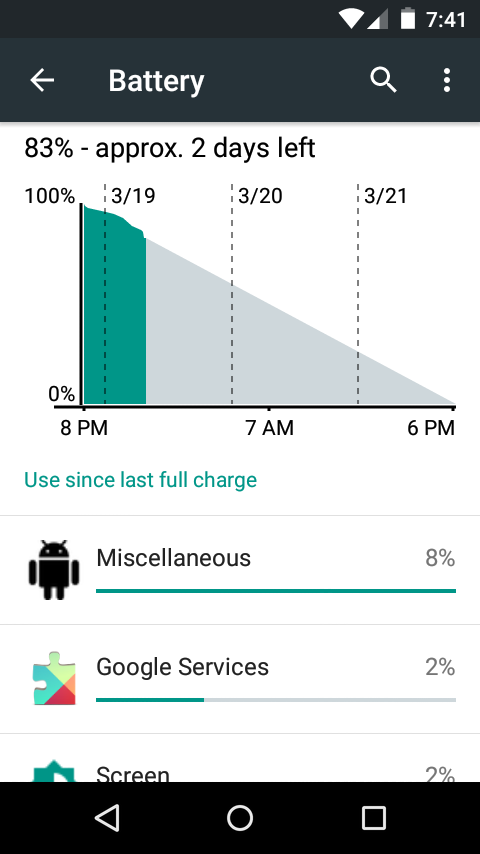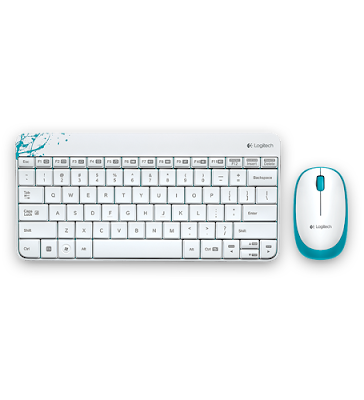Evercoss One X (A65) Review [UPDATED]
Update: Thanks to a feedback from a reader (+CharlesAlva), I've discovered a few bugs that may hinder with user experience. I've just updated the article to uncover those bugs.
Update 2: I've managed to update to stock ROM (not user debug). I'm going to post the steps I went through to install it later today. Stay tuned.Update 3: Something came up. I can't post it today. I'm going to post it in a few days. I'm terribly sorry for the inconvenience.
Update 4: It's Up! You can read it here. Enjoy!
In
Indonesia, people of higher society has one interesting stereotype: local
brands are inferior compared to imported brands. This stereotype is applied not
only to food and fashion items (some excluded), but also to electronic devices
as well. Most higher end people wouldn't even bat an eye for local products.
Most of them would rather just take a Samsung or an iPhone instead.
However,
I think that's about to change, thanks to an initiative by Google which were
launched last year, Android One. Android One is a set of devices aimed at
first-time smartphone buyers or those who look for budget smartphones. For this
low-budget category, Google has been partnering with local handset vendors in
developing countries such as India, Indonesia, and Philippines. Having launched by Google, these devices are not only
directly supervised by Google during production, but they also receive updates directly from
Google as well. Think of them as low-cost Nexus.
In
Indonesia, three new Android One devices were just launched. I'm going to
review one of them: Evercoss A65 aka Evercoss One X (not to be confused with HTC's former flagship). Here are the specs of the
device:
Processor
|
MTK
MT6582 Quad-Core 1.3GHz
|
RAM
|
1GB
|
Storage
|
8GB,
expandable with MicroSD Card up to 32GB
|
Screen
|
4.5
inch
|
Battery
|
1,700
mAh Removable
|
Resolution
|
FWVGA (480x850), 240dpi
|
Camera
|
5MP
rear AF 1080p, 2MP front 720p
|
Additional
Features
|
Android
5.1 Lollipop
|
Dual Micro SIM 3G
FM
Radio
|
|
Wi-Fi,
Bluetooth, Proximity Sensor, Light Sensor, Accelerometer
|
Current
Android One devices have the same specs. However, I chose the One X because I
prefer the design compared to the other two. So, perhaps the Android One could
be the best bang-for-the-buck Android smartphone for the masses on paper.
However, is it really worth the money? Find out after the break.
P.S. This review is aimed at Indonesian readers. However, as I said earlier, current Android One devices have similar specs, so they might also perform similarly with the One X.
P.S. This review is aimed at Indonesian readers. However, as I said earlier, current Android One devices have similar specs, so they might also perform similarly with the One X.
Package
 |
| The packaging looks nice. |
For a
budget smartphone, I must say I'm quite impressed with the packaging. The box
is solid, and actually looks good. Opening the box, the contents are also
complete. You'll get the handset, the battery, charger unit with separate USB
cable, headset, and an additional leather case. The headset certainly looks
cheap, but at that price point, you better be grateful you get one. Oh, and
don't forget the paperwork like warranty card and user manual.
 |
| The contents look solid. They even add a leather case. |
As for
the leather case, it's actually a case that's attached to the back of your
phone via duct tape. The sales rep said it's detachable, but I wouldn't give it a try, knowing that it might leave sticky traces on the back. Although the case is made of synthetic leather, it protects both the front and the back of your handset at the very least.
 |
| Oops, forgot the charger. |
All in
all, the package is very solid and complete, considering the price you have to
pay to take this phone home.
Design
Nothing
special in this department, but that's still forgivable given the price point.
The matte back of the phone isn't a fingerprint magnet, but still slippery
nonetheless, unless you attach the included cover. Another downside of matte white cover is that it's easy to attract smudge. You might want to make sure your hand is free of any ink before you hold your phone.
On top side of the phone, you'll find the 3.5mm audio jack to plug your headset in. On the bottom part, you'll see the microUSB port and the microphone. There's nothing on the left side, but on the right side you'll see the power/lock button and the volume rocker.
The back
side houses the camera, while the front side is the primary place for the
screen. There's no additional button on this side. There's also the Nexus 5-ish
circular earpiece, the front camera and the proximity / light sensor.
Although
the design isn't very attractive, I can't really complain. It seems like the
vendor didn't really invest much in the design department. The design is boring
but functional.
On top side of the phone, you'll find the 3.5mm audio jack to plug your headset in. On the bottom part, you'll see the microUSB port and the microphone. There's nothing on the left side, but on the right side you'll see the power/lock button and the volume rocker.
 |
| Lock / Sleep / Power button and Volume Rocker on the right side |
 |
| The 3mm audio jack on topside of the phone |
 |
| Mic and Micro USB port on the bottom side |
 |
| The front side. Additional note: The screen is reflective. |
 |
| On the back, you'll find two micro SIM slots, SD Card slot, and the battery |
Software
Knowing
that this phone is maintained directly by Google, you have every right to brag
about it to your friends. This phone already has Android 5.1 out of the box,
which even the Nexus line hadn't got yet by the time of this phone's release.
Google is committed to support the Android One line for up to 2 years (at least
18 months from release), which is very nice at this price point.
 |
| Lollipop 5.1 out of the box |
Moving on
from the software update, the One X is running nearly stock Android. Never
having experienced Lollipop before, I am wowed by the fresh UI design (dubbed
Material Design) of the OS. It's smooth, responsive, and actually fun to use. I
literally couldn't wait for 4 hours to first charge the phone on the day I
bought it. As for battery life, it's still average, although there's slight
improvement. The phone can last for a day or even more with normal usage. With power-saving mode, Google claims that you'll get an additional 90 minutes of lifetime, depending on your usage, of course.
Update:
It turns out that the Android software running on the phone is a pre-release build, judging from the user debug in the build number. Unfortunately, this user debug has a battery bug (Miscellaneous entry in the battery usage. That isn't normal, and it uses the most amount of battery), so you may want to take notice. According to my source, only One X use the pre-release software compared to the other two. It seems like we have to wait for an official update to fix this one.
Update:
It turns out that the Android software running on the phone is a pre-release build, judging from the user debug in the build number. Unfortunately, this user debug has a battery bug (Miscellaneous entry in the battery usage. That isn't normal, and it uses the most amount of battery), so you may want to take notice. According to my source, only One X use the pre-release software compared to the other two. It seems like we have to wait for an official update to fix this one.
 |
| This isn't right. Granted, I never saw any "Miscellaneous" entry in the battery usage of all my Android phones... |
 |
| The actionable lock screen in Lollipop is very nice. |
Out of
the box, there are three additional apps installed: U-Box which acts like
customer service app, Xender for wireless file transfer between your PC and the
handset, and Volta, which logs your battery usage and app activity, in addition to BBM, which comes pre-installed with most Android handset in Indonesia. Don't be alarmed by this. Google does allow Android One manufacturers to pre-install a few apps. More than that, everything's stock.
 |
| Looks the same, but trust me. Lollipop is different. |
There is
one nasty bug that I experienced during the testing. The LCD suddenly went off
and it wouldn't turn on again. I thought the battery was depleted, so I charged
it. However, when I tried to restart the phone, the LCD suddenly went blank
during the boot animation, as if the phone was locked. When the LCD was off,
everything worked fine, from messing with the volume to locking the phone. The
LCD just wouldn't turn on. I tried to remove and replace the battery a few
times with no success. Fortunately, this bug was somehow fixed on its own and I
can use it again.
I think
that bug is related to the software, since the LCD is actually fine.
Hardware and Performance
During my
7 days of use, I must admit that I am impressed with this phone's performance.
Granted, it isn't as fast as my old LG G2, but it's still pretty fast, probably
thanks to the new ART runtime and the revamped stock UI. Loading times were
also pretty quick, thanks to the quad-core processor. Oh, and don't forget about the multitasking. Thanks to the new runtime and generous 1GB of RAM, it's silky smooth. I juggled between three apps: Twitter, Chrome, and Instagram, and I didn't experience any lag.
 |
| The specs in CPU-Z app |
Synthetic
benchmark Antutu gave this handset the score of 19925. It's the last on the
device chart, but benchmark doesn't actually reflect the usage in real life,
does it?
 |
| AnTuTu Score |
 |
| The Competition Chart |
About the storage. This phone only has 8GB of onboard memory, with only 5.75GB available. I strongly recommend you to get an SD card and use the additional storage for your media such as downloads, pictures, and musics. There is no option to move apps to SD card, unfortunately, but you're welcome to do it with other means (aka root, third-party apps) if you feel adventurous.
The
battery doesn't heat up quickly, even with continuous chats and notifications
coming in, as long as you have a good signal coverage. As for games, I haven't
got the chance to try it, but given the modest internals, I don’t recommend
demanding games like Asphalt 8. If you really want to play, I recommend you to
tweak your settings before playing it.
Camera
Equipped with 5MP sensor on the rear that's capable of recording 1080p video, the One X is adequate for most everyday shots. The shutter takes approximately 2-3 seconds before snapping a photo, depending on the environment. The camera app (by Google) supports various modes such as HDR, Panorama, PhotoSphere, and LensBlur. Oh, and if you're wondering, the rear camera (obviously and certainly) has Auto Focus.
As for the sensor, it captures 'okay' images. If you're used to fast-shutter phones like Samsung flagships, it'll take time to get used to this camera. It's very easy to take blurry pictures. You'll have to stop moving for a few seconds to make your picture perfectly clear, since there's obviously no OIS at this price point.
Here are the camera samples:
 |
| Indoor |
 |
| Outdoor |
| Outdoor |
 |
| Outdoor |
The front camera is a 2MP snapper capable of recording 720p videos. Being a front camera, there's no AF feature here, and certainly no Auto Focus.
 |
| Front camera sample shot |
Update:
It seems like there's a camera bug plaguing the trio of Indonesia's Android One handsets. My source said that whenever you use the flash to take a picture in dark places, the pictures would become so bright that it's white on almost 19/20 part of the image. I tested that claim, and indeed that was true. I hardly use flash to take photos unless it's really necessary, that's why I think I missed this one. Anyway, here are the sample images:
Believe it or not, the camera bug seems to be affected by either the distance to object or the lighting condition. If it's dark to pitch-black, even if you're pretty far from the object, your image will turn white. Additionally, even if you're too close to your object, even if there's still some little light, your picture will turn mostly white.
It seems like there's a camera bug plaguing the trio of Indonesia's Android One handsets. My source said that whenever you use the flash to take a picture in dark places, the pictures would become so bright that it's white on almost 19/20 part of the image. I tested that claim, and indeed that was true. I hardly use flash to take photos unless it's really necessary, that's why I think I missed this one. Anyway, here are the sample images:
 |
| Using flash. The light somehow becomes very bright |
 |
| Using 3rd party camera app may fix the problem. The picture above was taken using Camera Zoom FX + Flash |
 |
| Another sample taken by Camera Zoom FX + Flash. Distance to object seems to affect the bug. |
 |
| Taken by default Camera + Flash. Note that this is low-light. Distance to object seems to affect this bug. |
Sadly, this bug isn't exclusive to only One X. Other Android One phones (at least in Indonesia) also has this camera bug. If you want a simple fix, you might want to use a third-party camera app, although it's kind of a hit-or-miss.
Conclusion (Updated)
Conclusion (Updated)
Even though this could be the perfect momentum for local brands to showcase their build quality to the masses, it is plagued by bugs and pre-release software. The bugs certainly aren't the manufacturer's fault, but it should've been tested first before rolling out to the masses. Regarding to the pre-release software, I honestly can't believe someone could miss this. Pre-release software is fine during launch, but after launch, they really should re-check whether the software version is final or not, as pre-release software is more likely to have bugs, like the battery bug. If these local brands don't show that they truly care for their customers, I think they really, really, really have missed one heck of a chance.
Anyway, aside from my complaints, for around IDR 1,300,000.00 (around USD110),
you'll get a decent budget phone, but not a cheap one. The phone is solid, with
a few forgivable downsides (and some nasty bugs). Aside from its own kin (Nexian Journey One and Mito
Impact), I say that there are only a few competitions in the market, notably
from Chinese manufacturers, especially Lenovo and ASUS' Zenfone series.
However, within this price range, no one can beat Google's promise to update
the phone's OS for at least 18 months. Again, if you're okay with the bugs, that is...
Pros:
- Great price-to-performance ratio
- Software update directly from Google for up to 2 years
- Lollipop out of the box
Cons:
- Camera bug is really, really nasty
- Pre-release software causes the battery to work less effectively
- Limited storage space
Okay, I guess that's that, Folks. As usual, if you have any critics, suggestions, or comments, feel free to sound off below. I hope you find this review useful and in the end, thanks for reading and I'm looking forward to your next visit. Have a nice day, everyone :D


impressive. thank you for reviewing Evas One X
ReplyDelete